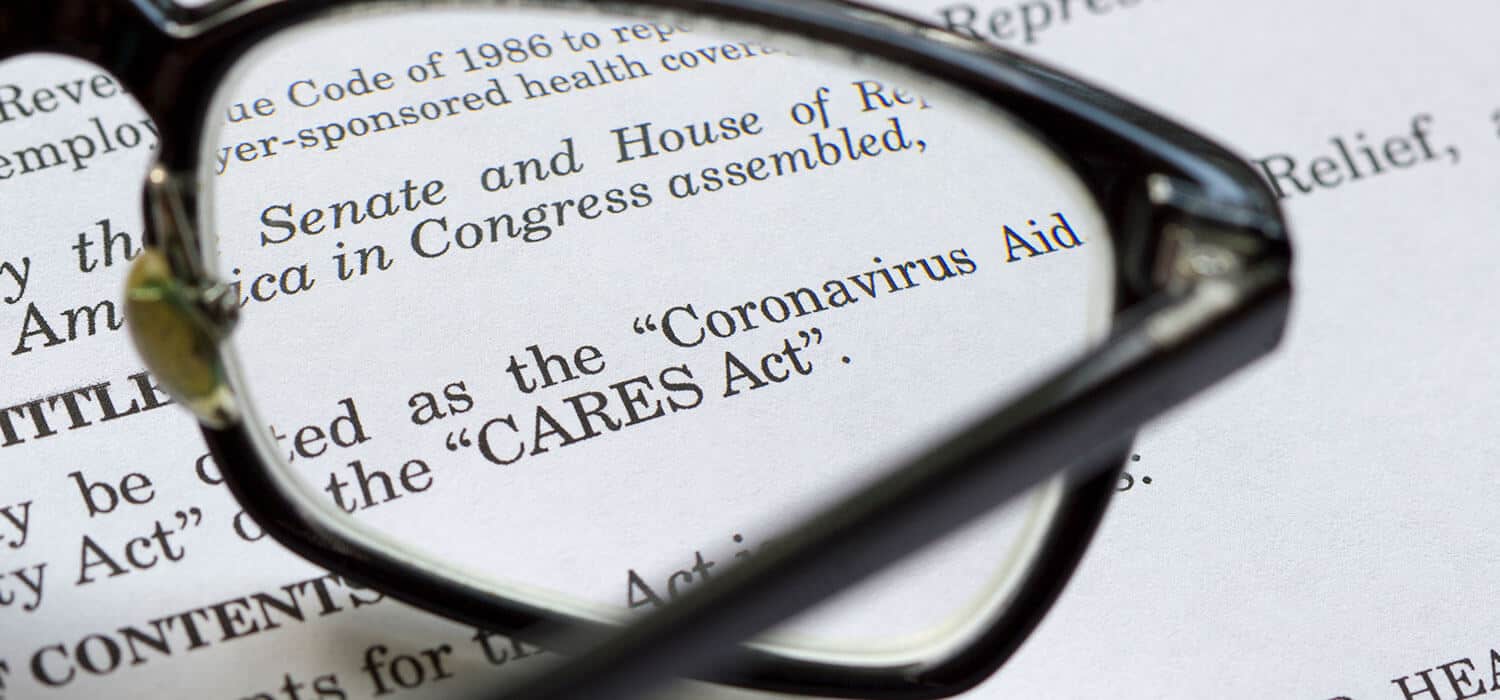The CARES Act and Qualified Improvement Property
December 14, 2020 | Tax Articles

A provision of the Coronavirus Aid, Relief and Economic Security (CARES) Act has provided a much-anticipated technical amendment regarding “qualified improvement property” (QIP). This provision corrected a flaw in the Tax Cuts and Jobs Act (TCJA) of 2017, and has made QIP eligible for bonus depreciation of 100%, applied retroactively to tax years beginning after December 31, 2017.
Before the passage of the TCJA in 2017, there were several categories of nonresidential real property improvements which were depreciated over a 15-year life, instead of the usual 39-year life for nonresidential real property including qualified leasehold improvements, qualified retail improvement property, and qualified restaurant property. In 2015, Congress added QIP as an additional asset class. At that time, QIP was not given a 15-year depreciable life; instead, it allowed a taxpayer to claim bonus depreciation of 50% in the first year it was placed into service.
QIP is any improvement made to an interior portion of nonresidential real property (residential rental property is specifically excluded), made after the building is first placed in service. Examples of such qualifying improvements include installation or replacement of drywall, ceilings, interior doors, fire protection, mechanical, electrical, and plumbing. Excluded from the definition are improvements attributable to internal structural framework, enlargements to the building, and elevators or escalators.
The intent of the TCJA in 2017 was to eliminate all other categories of 15-year depreciated improvement property, and to insert QIP as the only 15-year improvement property. Additionally, Section 168(k) would be amended to allow 100% bonus depreciation (i.e., fully deductible the year the property is placed into service) for any property with a depreciable life of 20 years or less. Although that was the plan, QIP was not included in the definition of 15-year property in Section 168(e)(3)(E) as the result of an apparent drafting error. As a result, QIP was not “qualified property” entitled to 100% bonus depreciation in Section 168(k)(2)(A). When the drafting error became apparent shortly after the TCJA was adopted, the IRS concluded that it did not have authority to correct the inadvertent omission. As a result, QIP continued to be treated as 39-year property and ineligible for bonus depreciation.
The technical amendment included in the CARES Act corrects this error by changing the depreciable life of QIP from 39 years to 15 years, which renders QIP eligible for 100% bonus deprecation under IRC 168(k). QIP is therefore 100% deductible in the year the QIP is placed in service.
This CARES Act fix applies retroactively to January 1, 2018, with the following ramifications:
- Taxpayers who constructed QIP in 2019 and who have notfiled their 2019 federal income tax returns can claim the 100% bonus depreciation in their 2019 federal return. The revised initial filing deadline of July 15, 2020, pursuant to Notice 2020-18, should provide many taxpayers with additional time to identify assets and make adjustments. Taxpayers who have already filed their 2019 tax returns treating QIP as 39-year property may amend their 2019 return to claim the bonus depreciation.
- Taxpayers who constructed QIP in 2018 and who havefiled their 2018 tax return treating QIP as 39-year property should consider amending those returns to claim the bonus depreciation. For C corporations, in particular, claiming the bonus depreciation on an amended return can potentially generate net operating losses (NOLs) which can be carried back five years under new NOL provisions also included in the CARES Act. This can be very valuable for tax years prior to 2019 when corporate tax rates were 35%. This is true even though the carryback losses were generated in years when the corporate tax rate was 21%.
- If the QIP amendment results in an NOL in 2018 or 2019, the IRS has extended the time within which to file an Application for a Tentative Allowance, Form 1045 for individuals and Form 1139 for corporations, for 2018 to June 30, 2020. The deadline for filing an Application for a Tentative Allowance for a 2019 NOL is December 31, 2020.
- Alternatively, in lieu of amending their 2018 return, taxpayers may file, with their 2019 return, a Form 3115, Application for Change in Accounting Method, to take advantage of the new favorable treatment and claim the missed depreciation. The Form 3115 would reflect a favorable Section 481(a) adjustment computed as if QIP had been eligible for the 100% bonus depreciation, thereby creating the same benefit as if an amended return had been filed, but in the current year, without the administrative burdens. The determination of whether to amend a 2018 tax return or file an automatic method change in 2019 must be made considering each taxpayer’s individual situation.
- Expensing is available to taxpayers who have not previously elected out of the interest deduction limitations under section 163(j), which limits interest deductions to 50% of income. Taxpayers may have to re-evaluate any section 163(j) election when considering whether to accelerate depreciation for QIP.
- With regard to filing amended returns by entities taxed as partnerships, the IRS is allowing partnerships subject to the centralized partnership audit provisions to file an amended partnership return for 2018 or 2019 to take advantage of beneficial tax provisions in the CARES Act. The IRS announced in Notice 2020-23 that such partnerships, which are generally prohibited from filing an amended return, may file an amended partnership return for 2018 or 2019 to take advantage of the CARES Act provisions.
- Revenue Procedure 2020-25 provides detailed guidance on claiming the missed depreciation now allowed under the CARES Act for 2018, 2019, and 2020.
–
Legal disclaimer: The information in this article (i) is provided for general informational purposes only, (ii) is not provided in the course of and does not create or constitute an attorney-client relationship, (iii) is not intended as a solicitation, (iv) is not intended to convey or constitute legal advice, and (v) is not a substitute for obtaining legal advice from a qualified attorney. You should not act upon any of the information in this article without first seeking qualified professional counsel on your specific matter.
Subscribe to our Blogs
Get notified when new posts are published.

